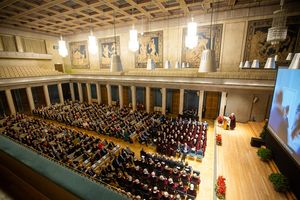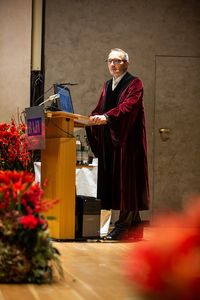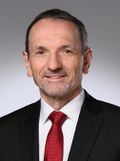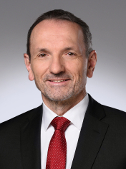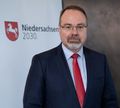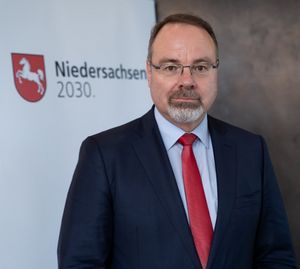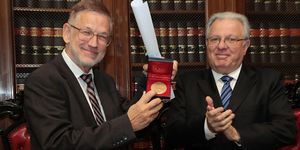For the second time now, the two-day event was organized by Ph.D. students and Postdocs of the Department for Innovation and Entrepreneurship Research headed by Dietmar Harhoff to give young scholars the opportunity to present and discuss their work.
This year’s attendants experienced two workshop days filled with an exciting program comprising 14 paper presentations on the Economics of Innovation, Science and Entrepreneurship based on various methodological approaches, which were followed by 14 discussions from experienced researchers. A special highlight of the event was the inspiring keynote speech by Pierre Azoulay, Professor at the MIT Sloan School of Management and Research Associate at the National Bureau of Economic Research.
On the first day, the workshop focused on topics related to the determinants of scientific productivity. Speakers presented research findings on how scientists select interesting research questions and potential collaborators as well as on the relevance of access to funding and research tools. The afternoon was dedicated to the role of gender in science, especially to analyzing peer effects and the importance of female role models. To conclude the day, keynote speaker Pierre Azoulay presented interesting research results on “The Impact of Scientific Training on Today’s Trainers”. He emphasized the role of training in nurturing scientific talents and the importance of building programs that incentivize them to remain active in science.
The morning of the second day offered interesting insights on innovation and entrepreneurship. Young scholars presented research on the geographic diffusion of knowledge as well as on the transfer of scientific knowledge into commercial applications. They shed light on the circumstances under which universities and individual researchers foster the innovation outcomes of their communities. In the afternoon, the workshop focused on the design and effects of intellectual property rights regimes. Researchers simulated the consequences of changes in the current European patent system. Additionally, they provided evidence on the effects of patents on start-ups as well as on the pricing behavior of firms.
See the complete program with all topics here and check out on Twitter under #RISE2Workshop.
The RISE workshop series aims at stimulating a rigorous in-depth discussion of a selected number of research papers by Ph.D. students and Junior Postdocs, providing feedback and connecting with peers from other research institutions. Accordingly, the workshop brings together young researchers from all over Europe and the US with researchers from the Munich Innovation Community.
We thank all organizing parties involved and all participants, including the keynote speaker, discussants and presenters for a truly outstanding RISE2 Workshop 2019. With great enthusiasm and motivation, we look forward to the RISE3 Workshop 2020.

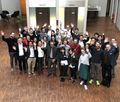
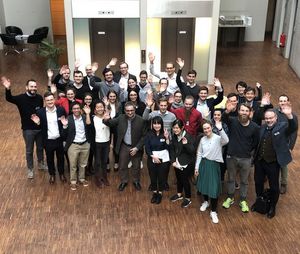
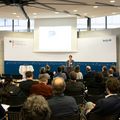
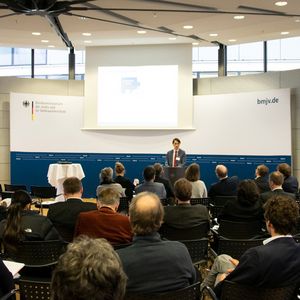
![[Translate to english:] [Translate to english:]](/fileadmin/_processed_/b/4/csm_HJR_4840_berabeitet_Quadrat_c787a12dbf.jpg)
![[Translate to english:] [Translate to english:]](/fileadmin/_processed_/b/4/csm_HJR_4840_berabeitet_Quadrat_16cb05dff7.jpg)

